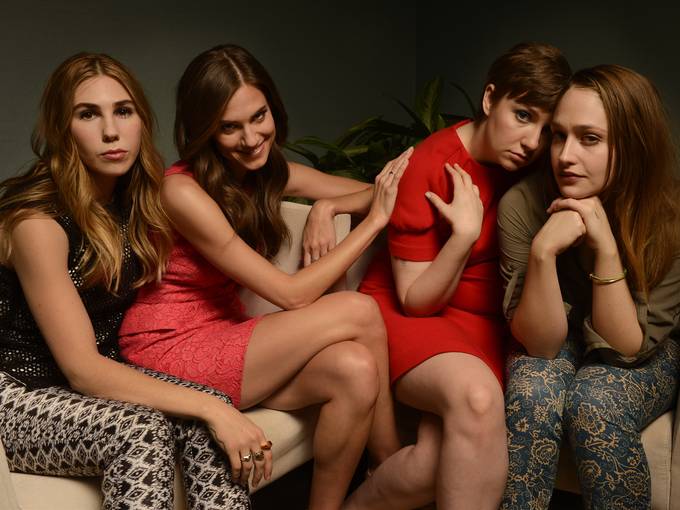
Girls is a frustrating show. There’s no other widely viewed program in recent memory that’s received the same level of critical backlash week to week outside of The Walking Dead. It seems like every week I see people announce they’ve had enough of Lena Dunham and her naked body, unrealistic storylines that don’t amount to much of anything and romanticizing privileged white America any further. These are criticisms I don’t entirely agree with but certainly empathize with.
Yet somehow Girls has become the standard bearer for blemishes that are universally shared among many popular television series. While there are various explanations for this occurring – explanations that are both soundly analytical; HBO has a higher standard for programming, and others wholly unmerited; Lena Dunham looks gross naked – I have a difficult time throwing in the towel on Girls. For my money, there’s no better show with a dominantly female cast currently on television. That kind of dynamic is uniquely refreshing when it succeeds.
It might have been the second episode of Girls when I made the inevitable Sex and the City comparisons. This was fairly undeserved – my knowledge of Sex and the City extended only as far as a few episodes watered down for basic cable, a string of apparently terrible movies I only saw the trailers for and occasionally coming home to my girlfriend revisiting the series via HBO Go. When it comes to my early comparison, I suppose seeing a group of sharply opinionated females so open about their sex lives just brought about this generalization. In reality the two series are starkly different.
It’s impossible to revere Girls without touching on its many shortcomings. Rather than nitpicking it to death, I think the biggest thing plaguing the show is the polarizing figure that is Lena Dunham. Dunham is the nucleus of the series – an ever present figure both behind and in front of the camera. She drives the show and stunts its growth. She breathes life into this realistic New York universe while her character vastly overshadows the development of everyone around her. This last notion would be fine if the show was primarily just about Hannah Horvath. But if that’s the direction of the show, why ‘Girls’ and not ‘Girl’?
I suppose my case in point is Jemima Kirke’s character, Jessa Johansson – what the hell ever happened to her? She was an early favorite of mine from the beginning, a smoky eyed siren with whiskey breath who wore that certain chip on her shoulder like a badge of honor. As a regular viewer, I wanted to know more about Jessa – understand what really made her tick. I still don’t feel like I had that opportunity after two seasons in the books.
It took a season and a half to even scratch the surface of Jessa’s background story and for some reason the writers decided Hannah should come along for the ride. A rare glimpse into Jessa’s checkered relationship with her father, potentially the driving force behind her brief fits of madness, was offered up like a run-of-the-mill side dish. Girls is exceptional for being so unabashedly candid, the characters equal parts repulsive and endearing. But without proper focus, we don’t really know who these people are.
The series suffers greatly from a lack of focus, guilty of being visibly less committed toward minor characters throughout important stretches of their development. It’s because of this that when those meaningful moments finally do arrive they seem genuinely unsatisfying. Charlie and Marnie reuniting in the recent finale hardly carried weight because their relationship was an afterthought, victim to an entirely unstable story arc. You just can’t force these things.
I still believe Girls is refreshingly original and growing into itself. For the show to be the topic of conversation week after week – no matter if the context is negative – the production team must be doing something right. Perhaps we’re witnessing the growing pains of a young and highly ambitious series, perhaps not. Either way I think things just got interesting. Why walk away now?